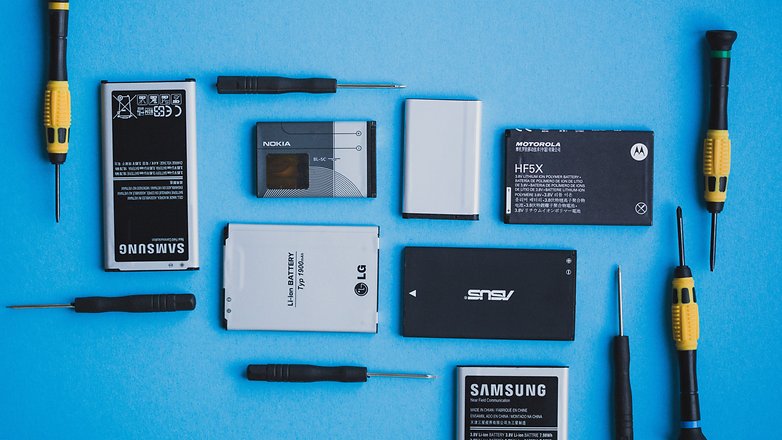
Scientists have warned that lithium-ion batteries can potentially emit over 100 poisonous gases which could take our lives.
A new study has found out that lithium ion batteries can expel off noxious gases that can harm our health and could even be fatal.
The research was conducted by scientists and researchers from Institute of NBC Defence in the United States of America and Tsinghua University in China mentioned. They said that many people don’t know about the consequences of overcharging.
In the present time, lithium-ion batteries power many electronics, ranging from smartphones to electric cars. These batteries power almost two billion new devices each year. So, it is necessary for us to know about the effects and risks associated with the batteries.
During their research, the scientists heated up nearly 20,000 lithium-ion batteries to the point “you would expect if the battery overheats or is damaged in some way”. This resulted in the production of up to 100 harmful gases including the deadly Carbon Monoxide. Some of those gases have the potential to cause irritation to eyes, skin and nasal passages while some have the potential to kill people.
Dr. Jie Sun, lead author and professor at the Institute of NBC Defence, said, “such dangerous substances, in particular carbon monoxide, have the potential to cause serious harm within a short period of time if they leak inside a small, sealed environment, such as the interior of a car or an airplane compartment.”
“We hope this research will allow the lithium-ion battery industry to continue to expand and develop with a greater understanding of the potential hazards and ways to combat these issues”, Dr. Sun added.
This research has shown another dark side of the ‘viable energy solution’ – lithium-ion batteries. These batteries not only give off noxious gases but are also prone to catching fire and exploding. The Samsung Galaxy Note 7 is the perfect example of this. So, to overcome all this, researchers need to come up with techniques for ensuring the safety in using lithium-ion batteries before something goes terribly wrong.







![Best Gaming Laptops in Nepal Under Rs. 250,000 (रु 2.5 Lakhs) [2025] Best Gaming Laptops Under 2.5 lakhs in Nepal [Feb 2025 Update]](https://cdn.gadgetbytenepal.com/wp-content/uploads/2025/02/Best-Gaming-Laptops-Under-2.5-lakhs-in-Nepal-Feb-2025-Update.jpg)
![Best Gaming Laptops in Nepal Under Rs. 120,000 (रु 1.2 Lakhs) [2025] Best Budget Gaming Laptops Under Rs 120000 in Nepal 2025 Update](https://cdn.gadgetbytenepal.com/wp-content/uploads/2025/05/Best-Budget-Gaming-Laptops-Under-Rs-120000-in-Nepal-2024-Update.jpg)
![Best Laptops Under Rs. 80,000 in Nepal [2025] Best Laptops Under 80,000 in Nepal March 2025 Update](https://cdn.gadgetbytenepal.com/wp-content/uploads/2025/03/Best-Laptops-Under-80000-in-Nepal-March-2025-Update.jpg)
![Best Laptops Under Rs. 70,000 in Nepal [2025] Best Laptops Under 70,000 in Nepal March 2025 Update](https://cdn.gadgetbytenepal.com/wp-content/uploads/2025/01/Best-Laptops-Under-70000-in-Nepal-March-2025-Update.jpg)
![Best Gaming Laptops in Nepal Under Rs. 200,000 (रु 2 Lakhs) [2025] Best gaming lapotp under 2 lakhs Nepal Feb 2025](https://cdn.gadgetbytenepal.com/wp-content/uploads/2025/01/Best-Gaming-Laptops-Under-2-Lakh-Nepal-Feb-2025-Update.jpg)
![Best Mobile Phones Under Rs. 15,000 in Nepal [Updated 2025] Best Phones Under 15000 in Nepal 2024 Budget Smartphones Cheap Affordable](https://cdn.gadgetbytenepal.com/wp-content/uploads/2024/03/Best-Phones-Under-15000-in-Nepal-2024.jpg)
![Best Mobile Phones Under Rs. 20,000 in Nepal [Updated] Best Mobile Phones Under NPR 20000 in Nepal 2023 Updated Samsung Xiaomi Redmi POCO Realme Narzo Benco](https://cdn.gadgetbytenepal.com/wp-content/uploads/2024/01/Best-Phones-Under-20000-in-Nepal-2024.jpg)
![Best Mobile Phones Under Rs. 30,000 in Nepal [Updated 2025] Best Phones Under 30000 in Nepal](https://cdn.gadgetbytenepal.com/wp-content/uploads/2025/01/Best-Phones-Under-30000-in-Nepal.jpg)
![Best Mobile Phones Under Rs. 40,000 in Nepal [Updated 2025] Best Phones Under 40000 in Nepal 2024 Smartphones Mobile Midrange](https://cdn.gadgetbytenepal.com/wp-content/uploads/2024/02/Best-Phones-Under-40000-in-Nepal-2024.jpg)
![Best Mobile Phones Under Rs. 50,000 in Nepal [Updated 2025] Best Phones Under 50000 in Nepal](https://cdn.gadgetbytenepal.com/wp-content/uploads/2025/01/Best-Phones-Under-50000-in-Nepal.jpg)
![Best Flagship Smartphones To Buy In Nepal [Updated] Best flagship phone 2025](https://cdn.gadgetbytenepal.com/wp-content/uploads/2024/07/Best-Flagship-Phones-who-is-it-ft-1.jpg)